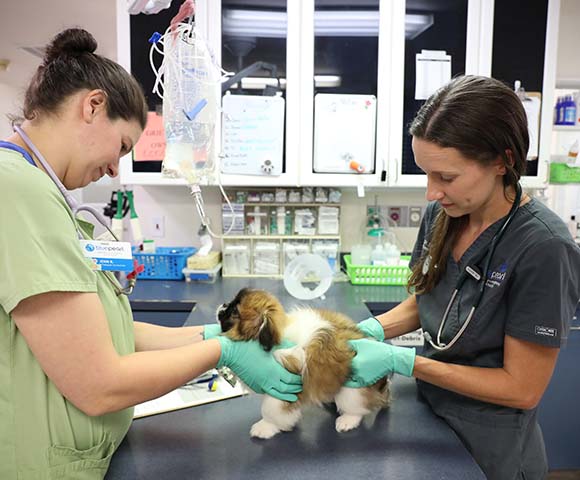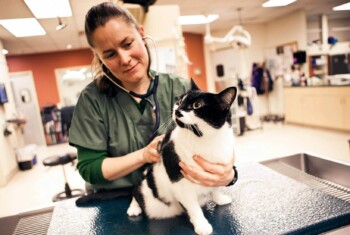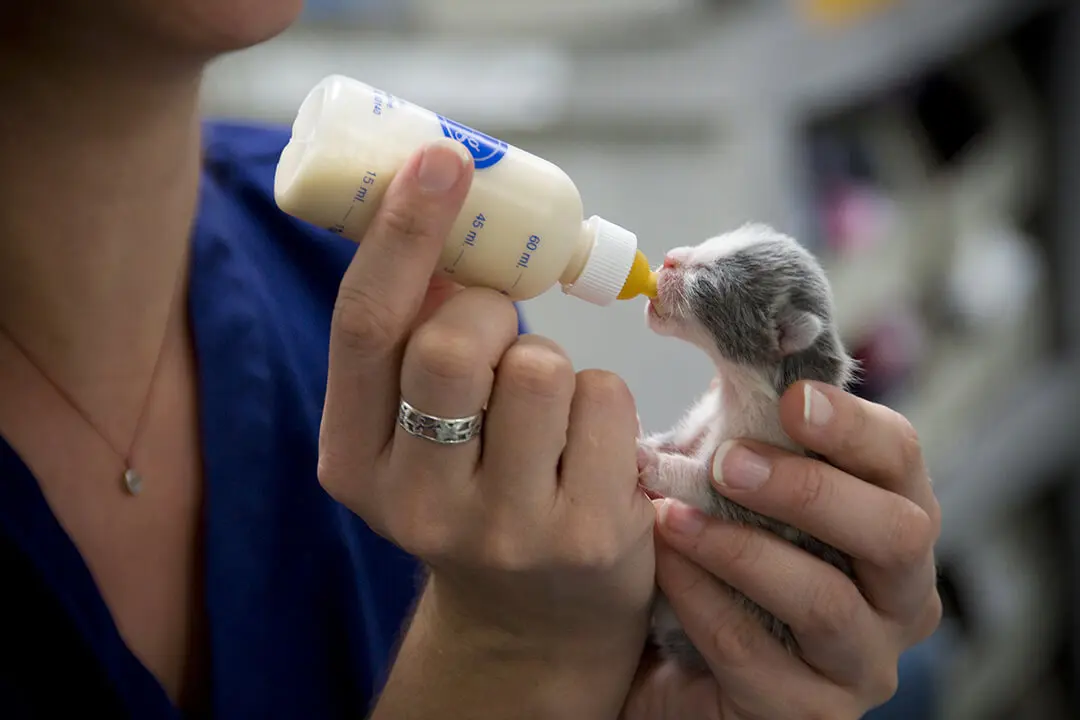Diarrhea in pets – which is identified by loose or watery stool – is a common cause of concern in dogs and cats. If your pet is experiencing diarrhea, you may be wondering:
- How can I help them feel better?
- When should I seek veterinary care?
- What is causing my pet to have loose stool?
Depending on the cause, some treatments may be simple, while others will require the expertise of a veterinarian, as this symptom could be indicative of a larger medical issue. Fortunately, there are steps you can take at home to learn about potential causes and decide whether or not to seek professional care for your pet’s symptoms.

What causes diarrhea?
There are many causes of diarrhea in pets, ranging from simple and short-term issues to complex and challenging diseases.
Common causes of diarrhea in cats and dogs include:
- Stress, like changes in routine or environment
- Change in diet or ingestion of something irritating
- Parasites, such as Giardia, hookworms and roundworms
- Infections (viral and bacterial)
- Toxin or poison ingestion
- Disease or illness
Common diseases that cause diarrhea in pets include:
Acute gastroenteritis.
Acute gastroenteritis is one of the most common causes of veterinary emergency room visits. It’s defined by the sudden onset of vomiting and diarrhea, which is often caused by inflammation, irritation or infection of the lining of the gastrointestinal (GI) tract.
One of the more common causes of acute gastroenteritis is dietary indiscretion, which is the tendency of pets (especially dogs) to eat anything, whether it’s food or not. Your pet may experience acute gastroenteritis if they eat things like:
- Table scraps
- Garbage
- Toys
- Clothes
- Cat feces
- Household items
There are many diagnostic tests that may be involved in diagnosing acute gastroenteritis, including a physical exam, laboratory work, abdominal radiographs or ultrasound.
Treatment options are wide-ranging depending on severity and each pet’s individual case. Common treatments include hydration, dietary changes and medications. Some cases are treated on an outpatient basis, while pets with more prolonged or significant signs of dehydration and nausea may benefit from hospitalized care. In mild cases, acute gastroenteritis may resolve on its own.
Chronic enteropathy.
Chronic enteropathy is defined as signs of gastrointestinal disease lasting longer than three weeks. It is a broad term that can have a number of causes. It can affect multiple parts of the body, including the lining of the stomach, small intestine, large intestine or a combination.
Intestinal cancer.
Signs that your pet may have intestinal cancer or a tumor in their GI tract include decreased activity or appetite, weight loss or pain, which often looks like crying, increased respiratory rate and decreased socialization.
Intestinal cancer is treated by surgery, chemotherapy, radiation or a combination of those methods.
Other causes of diarrhea.
Diarrhea is a common symptom in pets, and it’s often present in other conditions aside from the ones mentioned above. Other illnesses that cause diarrhea in pets include:
- Acute diarrhea: Dietary indiscretion, change in diet, stress, infectious diseases
- Chronic diarrhea: Addison’s disease, chronic pancreatitis in dogs or cats
When should I seek veterinary care?
If your pet has diarrhea, there are a few factors to determine your next steps in seeking care, including:
- Frequency: Large volumes of diarrhea frequently can result in fluid loss and dehydration.
- Length of time: Seek veterinary care for diarrhea lasting longer than 24-48 hours.
- Stool evaluation: Diarrhea with blood or black tarry discoloration warrants veterinary care.
- Other symptoms: Vomiting, lack of appetite, decreased water intake, lethargy and abdominal pain are all reasons to seek veterinary care.
Diarrhea is an incredibly common symptom in dogs and cats, and it can be caused by many conditions ranging from simple and self-limiting causes to a complex or chronic illness.
If you’re concerned about your pet’s diarrhea, seek veterinary care to discuss treatment options. BluePearl pet hospitals are located throughout the United States and offer emergency and specialty care for pets in need. Find your nearest BluePearl hospital.


